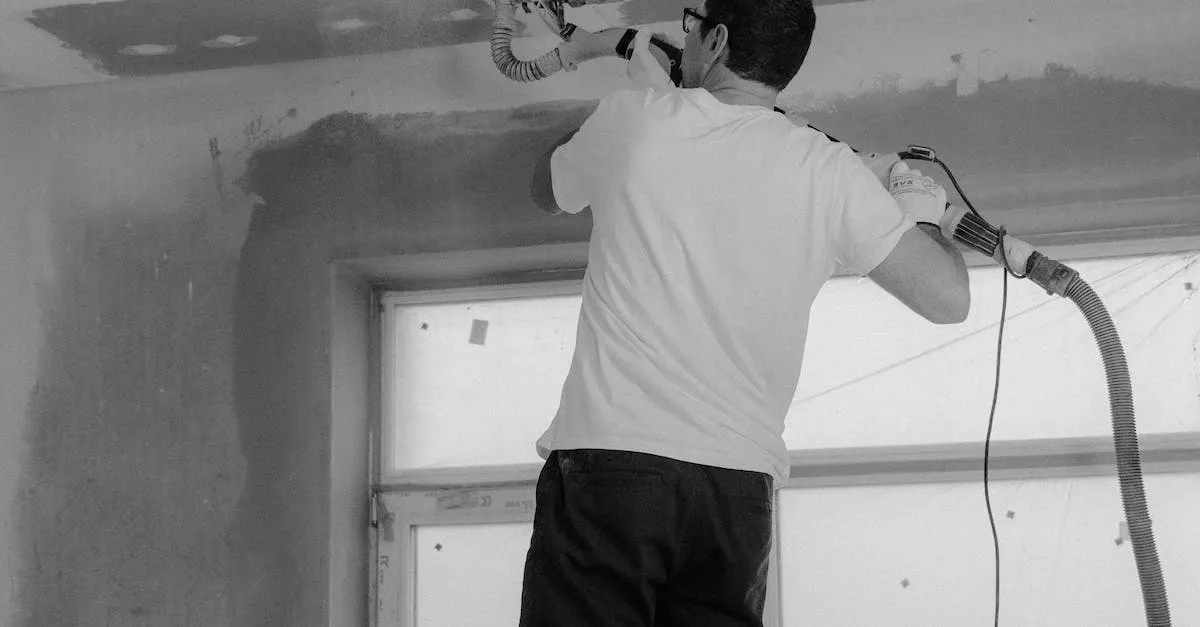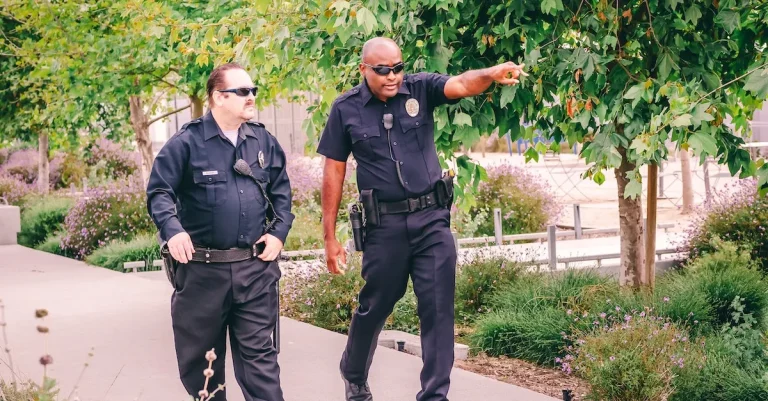Can A Handyman Install A Ceiling Fan In Florida?
Installing a ceiling fan can provide better air circulation and cut cooling costs in a Florida home. But can you hire a handyman to install a ceiling fan safely and legally in the Sunshine State? With Florida’s strict construction laws, homeowners must understand what work requires a licensed electrician versus an unlicensed handyman.
If you’re short on time, here’s a quick answer to your question: In Florida, a handyman can legally install a ceiling fan as long as they don’t alter existing wiring. Handymen cannot run new wires or install new electrical boxes when putting up a ceiling fan in Florida.
In this comprehensive guide, we’ll cover key topics like Florida’s handyman laws, licensing requirements for electrical work, permits needed for ceiling fan installs, and safety issues to consider. You’ll learn the specific tasks a handyman can and cannot perform when installing a ceiling fan in Florida, along with average costs and tips for hiring the right pro.
Florida’s Handyman Laws and Licensing Requirements
Florida has specific laws and licensing requirements for handymen, especially when it comes to certain types of work. It’s important for handymen in Florida to understand these regulations to ensure compliance and provide quality services to their clients.
This article will explore what types of handyman work are allowed in Florida and the licensing requirements for electrical work.
What Handyman Work is Allowed in Florida?
In Florida, handymen are typically allowed to perform a variety of general repair and maintenance tasks. This can include fixing leaky faucets, repairing drywall, painting walls, installing shelves, and assembling furniture.
Essentially, handymen can tackle small-scale projects that don’t require specialized training or licensing.
However, it’s important to note that there are limitations to what handymen can do in Florida. For example, they are not allowed to perform work that requires a specific license, such as plumbing or electrical work.
These types of tasks fall under the jurisdiction of licensed professionals in their respective fields.
Handymen in Florida should also be aware of any local regulations or restrictions that may apply to their work. Some cities or counties may have additional requirements or limitations on the types of handyman services that can be provided.
Licensing Requirements for Electrical Work
When it comes to electrical work, handymen in Florida must adhere to specific licensing requirements. Electrical work can be complex and potentially dangerous if not done properly, so the state ensures that only qualified individuals perform these tasks.
In Florida, a handyman can perform minor electrical work as long as it meets certain criteria. This includes replacing light fixtures, switches, and outlets, as well as installing ceiling fans and smoke detectors.
However, any work that involves altering the electrical system or wiring requires a licensed electrician.
It’s important for handymen to understand the limitations and requirements for electrical work in Florida to avoid legal issues and ensure the safety of their clients. Hiring a licensed electrician for more complex electrical projects is always the best practice.
For more information on Florida’s handyman laws and licensing requirements, you can visit the official website of the Florida Department of Business and Professional Regulation: https://www.myfloridalicense.com/.
Permits Required to Install a Ceiling Fan
When it comes to installing a ceiling fan in Florida, there are certain permit requirements that need to be considered. These permits ensure that the installation is done safely and in compliance with local building codes.
It is important to understand both the state and local permit requirements before starting the installation process.
State Permit Requirements
In Florida, a state permit is typically not required for the installation of a ceiling fan. However, it is always a good idea to check with your local building department to confirm this. They may have specific regulations or guidelines that need to be followed.
It is worth noting that while a state permit may not be required, it is still important to ensure that the installation is done properly. Hiring a licensed electrician or a handyman with experience in electrical work can help ensure that the installation is done safely and in compliance with any applicable codes.
Local Permit Requirements
While a state permit may not be required, there may be local permit requirements that need to be followed. These requirements can vary depending on the city or county in which you reside. It is important to check with your local building department or permit office to determine if a permit is needed for installing a ceiling fan.
Local permit requirements may include submitting an application, paying a fee, and having the installation inspected by a building inspector. These steps help ensure that the installation meets all safety and building code standards.
It is also worth mentioning that some local building departments offer online resources or guides that outline the permit requirements for various types of projects. These resources can be helpful in understanding the specific requirements for installing a ceiling fan in your area.
What a Handyman Can & Cannot Do When Installing a Ceiling Fan
Permitted Tasks for Unlicensed Handymen
Handymen in Florida are able to perform a variety of tasks when it comes to installing a ceiling fan. These tasks include:
- Mounting the ceiling fan
- Assembling the fan blades and attaching them to the motor
- Installing the fan’s downrod
- Attaching the fan to an existing electrical box
- Securing the fan canopy
- Installing the light kit (if applicable)
- Testing the fan’s operation
These tasks are considered basic installation steps that do not involve any complex electrical work.
Prohibited Electrical Work for Handymen
While handymen can handle many aspects of ceiling fan installation, there are certain electrical tasks that they are not allowed to perform. These include:
- Running new electrical wiring
- Installing a new electrical box
- Connecting the fan to the electrical system
- Wiring the fan’s switch or remote control
- Installing a new circuit breaker
These tasks require an electrical license in Florida, as they involve working with the electrical system of the home. It’s important to hire a licensed electrician for these specific tasks to ensure safety and compliance with local regulations.
According to the Florida Department of Business & Professional Regulation, any electrical work that involves the installation, alteration, or repair of electrical wiring, devices, appliances, or equipment must be performed by a licensed electrician. This regulation is in place to protect homeowners and ensure that electrical work is done correctly and safely.
If you’re unsure about what tasks a handyman can or cannot perform during the installation of a ceiling fan, it’s always best to consult with a licensed electrician. They can provide guidance and expertise to ensure that your ceiling fan is installed properly and meets all safety requirements.
Safety Issues When Improperly Installing a Ceiling Fan
While some handyman tasks can be easily accomplished by individuals with basic DIY skills, installing a ceiling fan is not one of them. Improper installation can lead to several safety issues that can put both the installer and the occupants of the space at risk.
It is always recommended to hire a professional electrician or a licensed contractor for such installations to ensure safety and avoid potential hazards.
Risk of Electrocution
One of the major safety concerns when improperly installing a ceiling fan is the risk of electrocution. Electrical wiring is involved in the installation process, and any mistakes or errors can lead to exposed wires or faulty connections. This can result in electric shocks, which can be fatal.
A professional electrician has the necessary knowledge and experience to handle electrical wiring safely, reducing the risk of electrocution.
Risk of Fire Hazard
Improperly installed ceiling fans can also pose a fire hazard. Faulty wiring or incorrect installation can cause overheating, short circuits, or sparks, which can lead to a fire. According to the National Fire Protection Association, electrical malfunctions are a leading cause of residential fires in the United States.
Hiring a professional to install a ceiling fan ensures that all electrical connections are properly made, reducing the risk of fire hazards.
Risk of Ceiling Collapse
Another safety concern when a ceiling fan is improperly installed is the risk of ceiling collapse. Ceiling fans are heavy and require proper support to ensure they are securely mounted. If not installed correctly, the fan can become loose over time and potentially cause the entire ceiling to collapse.
This can cause significant damage to the property and pose a serious risk to anyone underneath. A professional contractor will ensure that the ceiling fan is securely installed, minimizing the risk of a ceiling collapse.
Remember, when it comes to installing a ceiling fan, it is always better to be safe than sorry. Hiring a professional ensures that the job is done correctly and safely, protecting both you and your property.
Hiring a Handyman vs Electrician for Ceiling Fan Installation
When it comes to installing a ceiling fan in Florida, many homeowners wonder if they can hire a handyman instead of an electrician. While a handyman may seem like a more affordable option, there are several factors to consider before making a decision.
Cost Comparison
One of the main reasons homeowners consider hiring a handyman for ceiling fan installation is the cost. Handyman services are typically more budget-friendly compared to hiring a licensed electrician. However, it’s important to remember that the cost should not be the sole determining factor.
While a handyman may charge less upfront, they may not have the necessary expertise or knowledge to properly install a ceiling fan. This can lead to issues down the line, potentially costing you more in repairs or replacement.
On the other hand, an electrician may charge a higher fee, but they have the skills and experience to ensure the installation is done correctly.
Statistical data: According to a survey conducted by HomeAdvisor, the average cost of hiring a handyman for ceiling fan installation in Florida ranges from $100 to $300, while the average cost of hiring an electrician for the same service is between $150 and $500.
Experience Level
Installing a ceiling fan involves electrical work and should be done by someone who has the proper training and experience. Electricians undergo extensive training and are knowledgeable about electrical codes and safety regulations.
They are equipped to handle any electrical complications that may arise during the installation process.
Handymen, on the other hand, typically have a broad range of skills but may not have specific training in electrical work. While some handymen may be capable of installing a ceiling fan, it’s important to ensure they have the necessary expertise in this particular area.
Compliance with Laws & Permits
When it comes to electrical work, there are often laws and permits that need to be followed. Electricians are well-versed in these regulations and will ensure that the installation is compliant with local codes.
They will also handle any necessary permits, saving you the hassle of dealing with paperwork.
Handymen, on the other hand, may not be aware of these laws or may not have the authority to obtain permits. This can lead to potential legal issues if the installation is not done in compliance with regulations.
Statistical data: According to the National Fire Protection Association (NFPA), faulty electrical wiring is one of the leading causes of house fires in the United States. Hiring a licensed electrician for ceiling fan installation can help minimize the risk of electrical hazards and ensure the safety of your home.
Conclusion
While a handyman can legally install a new ceiling fan in Florida if they don’t modify wiring, extensive electrical work requires a licensed electrician. Safety issues like electrocution, fires, and ceiling collapse are risks if a ceiling fan is improperly installed. Consider both cost and experience when deciding between a handyman or electrician. And be sure to pull any required permits beforehand.








